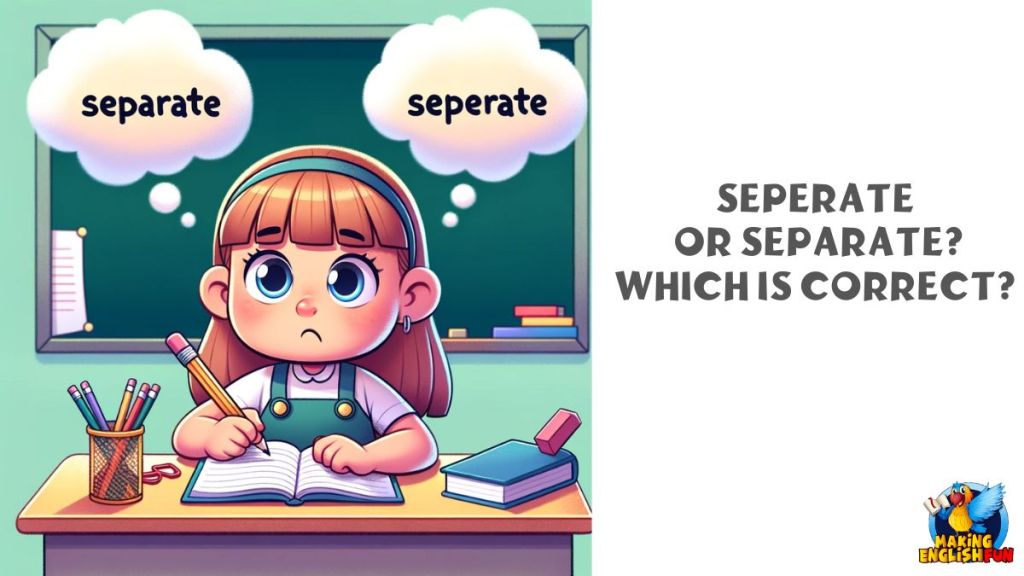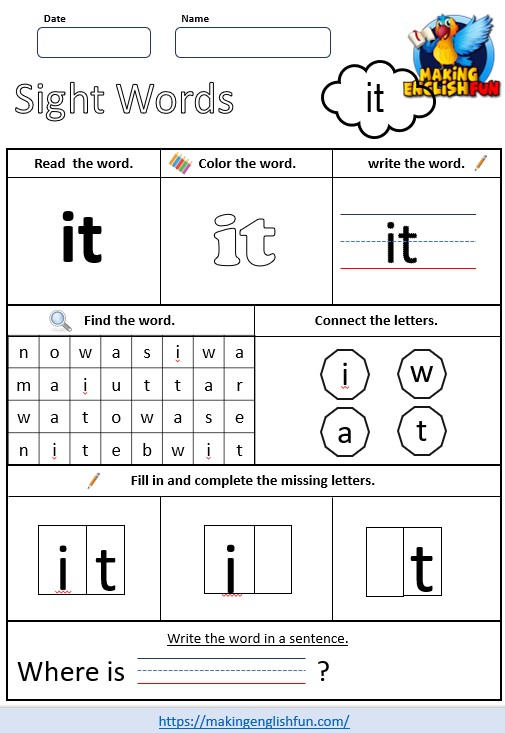Separate or Seperate? Which Spelling Is Correct?
A frequent point of confusion in English spelling is whether to use “Separate” or “Seperate.” This common mistake arises because of the subtle nuances in English spelling rules.
Understanding the correct form of this word is crucial, as it is widely used in various contexts ranging from everyday conversation to formal writing.
“Separate” is a word that often appears in discussions about division, classification, and distinction.
Whether it’s about separating ingredients while cooking, discussing separate entities in a business report, or outlining separate arguments in an academic essay, the correct spelling of this word plays a role in conveying clear and precise meaning.

Correct Spelling and Definition
The correct spelling is “Separate,” with an ‘a’ after the ‘p’.
“Separate” can function both as a verb and an adjective.
- As a verb, it means to cause to move or be apart, like in “The teacher asked the students to separate into groups.”
- As an adjective, it describes things that are not joined or connected, as in “They went their separate ways.”
Common Spelling Error: Seperate
The misspelling “seperate” with an ‘e’ after the ‘p’ is common but incorrect.
This error may stem from the way some people pronounce the word, emphasizing the ‘e’ sound, which can lead to confusion in spelling.
However, the correct form always includes an ‘a’ following the ‘p’.
Etymology and Historical Development
The word “separate” originates from the Latin “separatus,” the past participle of “separare,” which means “to divide.”
This etymology is reflected in both its spelling and meaning. The transition from Latin to English maintained the ‘a’ in the original Latin root, leading to the current spelling with an ‘a’ after the ‘p’.
Understanding this origin can aid in remembering the correct spelling and its associated meanings of division or separation.
Usage in Different Contexts
As a versatile word, “separate” is used in various contexts.
- In its verb form, you might say, “The system automatically separates the good from the bad.” Here, it denotes the action of dividing or distinguishing between things.
- As an adjective, it can be used in a context like, “They have separate bedrooms,” indicating that the bedrooms are distinct and not connected.
Recognizing how “separate” is used in different sentences can help in understanding its application and spelling.
Comparison with Other Common Spelling Confusions
Like “separate,” there are other words in English that often get misspelled due to confusion over similar-sounding vowels.
For example, “definitely” is frequently misspelled as “definately,” and “privilege” as “priviledge.”
Here’s a quick comparison table:
| Correct Spelling | Common Incorrect Spelling |
|---|---|
| Separate | Seperate |
| Definitely | Definately |
| Privilege | Priviledge |
This table illustrates the importance of paying attention to vowel spellings, which are often sources of errors in English.
We cover these words on the site as well as you can follow the links to check them out.
Tips for Remembering the Correct Spelling
A useful mnemonic to help remember the correct spelling of “separate” is to focus on the middle letter.
Think of the phrase “there is ‘a rat’ in separate,” highlighting the ‘a’ followed by ‘rat.’ This quirky phrase can help anchor the correct spelling in your memory.
Additionally, regular usage of the word in writing and speech will reinforce the correct spelling.
Practicing spelling through various exercises and quizzes can also be beneficial.
Conclusion
In summary, “separate” is the correct spelling, with an ‘a’ after the ‘p’.
Understanding the correct spelling and usage of such words is vital for effective communication in English.
Paying attention to common spelling errors and learning from them not only improves your writing but also enhances your overall language skills.
FAQs or Reader Questions
Q1: Are there specific rules for spelling words with similar vowel sounds?
English spelling does not always follow consistent rules, especially with vowels. However, familiarizing yourself with commonly misspelled words and their correct forms can be a practical approach to mastering these spellings.
Q2: Why is English spelling so irregular?
English draws from a wide range of languages, including Latin, Germanic, and French. This linguistic blend, combined with historical changes in pronunciation, contributes to its spelling irregularities.
Q3: What strategies can help in learning English spellings effectively?
Strategies include reading widely, practicing spelling regularly, learning word origins, and using mnemonic devices. Engaging with language in diverse forms is key to improving spelling skills.
Q4: How important is correct spelling in daily communication?
While minor spelling errors are often overlooked in informal communication, correct spelling is essential in formal, academic, and professional settings for clarity and credibility.
Q5: Can learning about etymology aid in vocabulary building?
Yes, understanding the etymology of words can greatly assist in building a richer vocabulary. It provides insights into the meanings and uses of words, making them easier to remember and use correctly.







